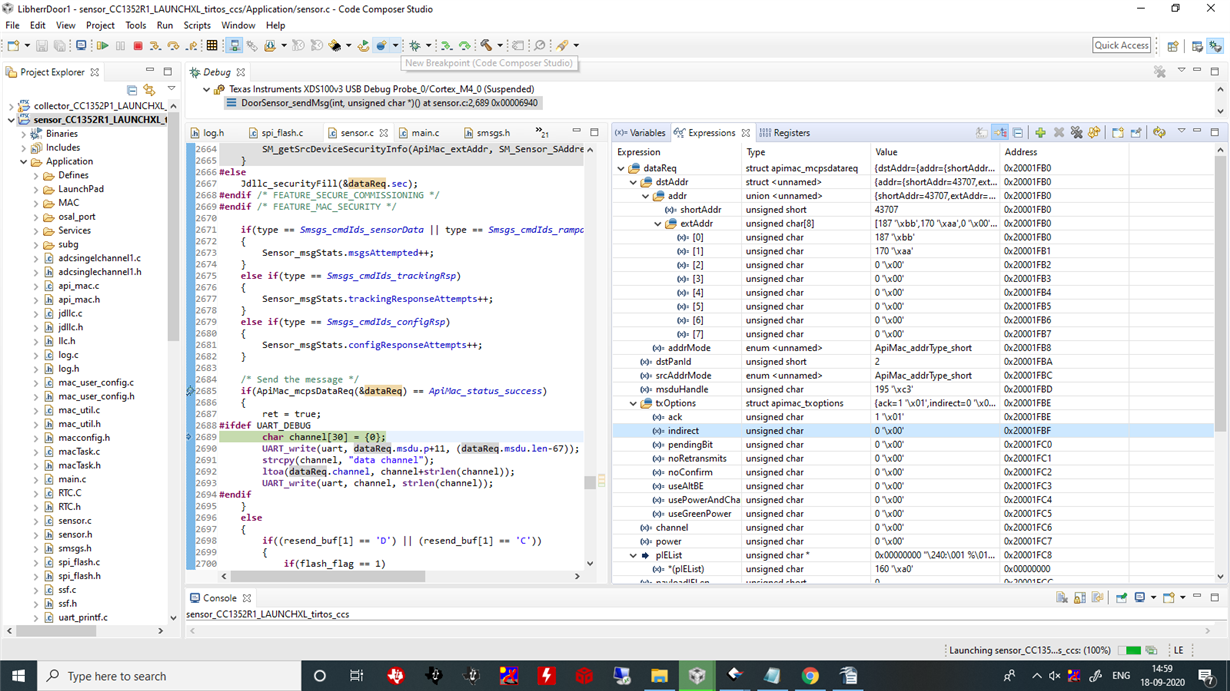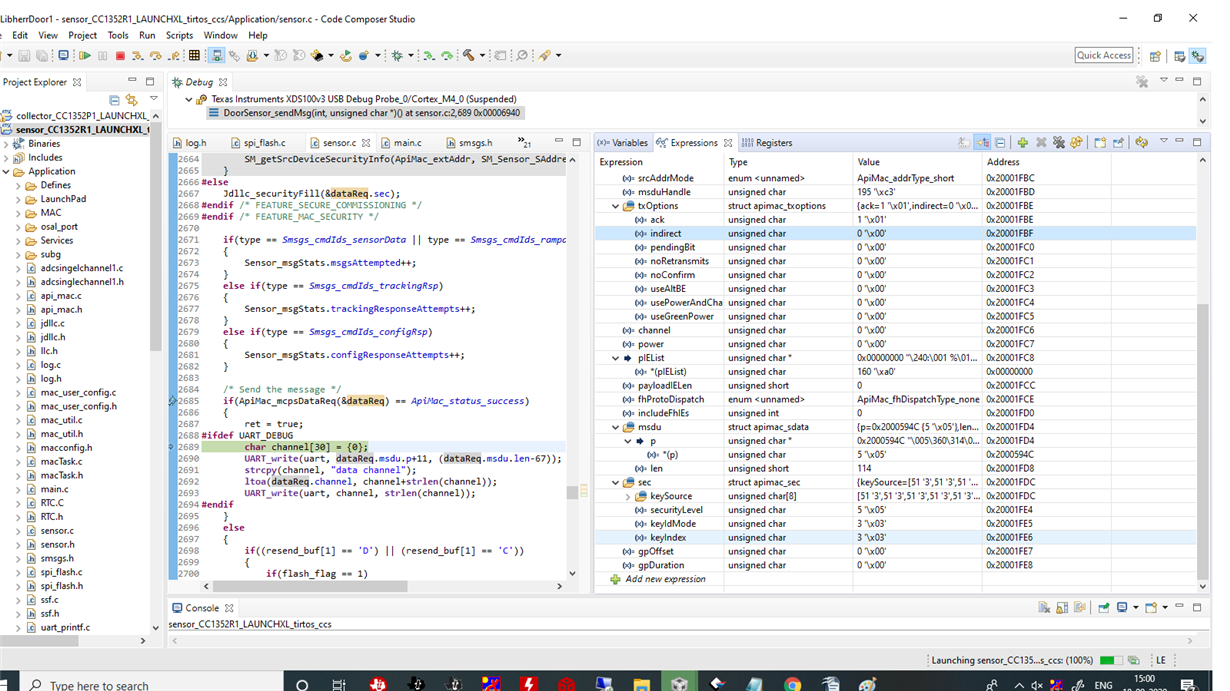Other Parts Discussed in Thread: CC1352P,
Hi,
I am using CC1352P as collector with transmit power 12 dBm and CC1352R as Sensor with transmit power 12 dBm.
The following are the details i used in CM and Sensor
1 Non-beacon mode
2. SDK3.3
3. 50 Kbps speed
4. 863Mhz.
Sensor is sending a message to Collector but collector is not sending acknowledge to sensor. So in our application we are sending same message with time stamp.
we have added data confirmation callback function messages to both collector and sensor.
we observe No Ack in sensor log. Collector is not performing any work at that time. what could be the reason?
What are the solution approaches for this scenario.




